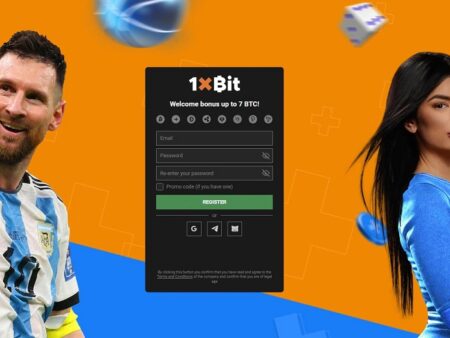The recent legalization process of sports betting in the USA has impacted the professional sports league. This impact extends to economic models, viewership methods, and ethical dilemmas. This article explores the multifaceted ramifications of legal sports betting on leagues such as the NFL, NBA, MLB, and NHL in light of today’s situation and modern issues.
Economic Impact of Legal Sports Betting on Professional Leagues
Historical Context and Economic Shifts
- Historically sports betting was limited to Nevada. In 2018 the Supreme Court decision overturned the Professional and Amateur Sports Protection Act (PASPA).
- Currently, 38 states and the District of Columbia have legalized sports betting, contributing to an estimated $120 billion in legal bets last year alone.
| State | Total Tax Revenue (Millions USD) | Number of Active Bettors |
| New Jersey | 200.5 | 1,500,000 |
| Pennsylvania | 150.2 | 1,200,000 |
| Nevada | 120.9 | 900,000 |
| New York | 95.4 | 800,000 |
| California | 82.3 | 700,000 |
Financial Growth and Investments in Legal Sports Betting
Opportunities have been exploited in this regards with exciting sponsors and sponsorships shareholding with betting operators.
- Stadium improvements and technological developments have enhanced fan experiences and increased league revenues.
Growth of In-Play Betting and Broadcast Innovations After Legalization of Sports betting
Rise of In-Play Betting in Legal Sports Betting
- In-play betting enables fans to wager during the event, thus enhancing long and continuous viewer involvement and thus higher viewer analytic retention rates.
- Modern broadcasting techniques incorporate in-play betting information into the broadcasts, thereby increasing the audience participation levels among target viewers.
| Event | Total Bets Placed (Billions USD) | Year-over-Year Increase (%) |
| Super Bowl | 10.49 | 24.8 |
| Kentucky Derby | 4.75 | 18.3 |
| NBA Finals | 2.91 | 15.7 |
| World Series | 1.88 | 12.6 |
Technological Integration in Legal Sports Betting
- Real-time odds and statistics seamlessly embedded in broadcasts offer fans interactive features and personalized betting options, transforming sports viewing into a dynamic, data-driven experience.
Ethical Considerations and Policy Frameworks with Legalization of Sports Betting
League Integrity and Policies in Legal Sports Betting
After a few cases where athletes were found involved in ethical breaches, Strict measures are set to maintain integrity within matches for it is against the rules for athletes to indulge in activities such as betting which may lead to manipulation of results.
| League | Player/Official | Violation Description | League Action Taken |
| NBA | Jontay Porter, Toronto Raptors | Violating betting rules by disclosing confidential information | Banned from league |
| NFL | Calvin Ridley, Atlanta Falcons | Betting on NFL games | Suspended for one season |
| MLB | Pete Rose | Betting on baseball games, including games involving his own team | Lifetime ban from Baseball Hall |
Educational Initiatives
- Preventative measures are endeavours performed to inform the athletes, employees, and other stakeholders in regards to the wrongdoings of gambling and how to avoid them.
Challenges and Adaptations for Leagues
Partnerships and Public Perception
- Despite ethical dilemmas, leagues have formed strategic partnerships with betting companies like FanDuel and DraftKings to enhance fan engagement and drive revenue growth.
- These partnerships leverage betting data to offer fans enhanced experiences and greater benefits while raising concerns over the integrity of sports competitions.
Technological Innovations and Future Trends
- Future technological developments such as integration of artificial intelligence in analysis and the evolution of mobile application interfaces for betting on sports will add to changes in branding and approach for interacting with the sports bettors.
- The legal structures of regulation remain progressive to fit industry puzzles and to guard against risks connected to gambling disorders and ethical violations.
Societal Impact and Future Outlook
Social Implications and Responsibility
- The normalization of sports betting through media and promotional activities raises concerns about gambling addiction and fan behavior.
- Industry stakeholders must collaborate to mitigate risks and uphold responsible gaming practices amidst the growing popularity of sports betting among younger demographics.
Insights from Recent Research
A recent study conducted in New Jersey, one of the pioneering states in this domain, offers valuable insights into how these changes have influenced consumer behavior and industry dynamics.
| Variable | Wagering Behavior | Interests in Sports | Sport-Related Consumption |
| Gender | Males more likely (β = -0.44, p < .01) | Not significant predictor | Not significant predictor |
| Economic Motivation (ECON) | Significant predictor (β = 0.35, p < .01) | Significant predictor (β = 0.43, p < .01) | Significant predictor (β = 0.50, p < .01) |
| Sport Fandom (SFQ) | Not significant predictor | Not significant predictor | Not significant predictor |
| R2 | .401 | .23 | .26 |
Key Insights:
- Study with 58 participants, mostly male (86%), average age 29.33 years.
- Income: 41% earn $50,000-$100,000, 37.2% earn over $100,000.
Behavioral Impacts:
- Gender and economic motivation (ECON) influence sports wagering.
- Men and higher economic motivation correlate with more sports betting.
Interest and Consumption:
- Higher economic motivation links to increased sports interest and consumption.
- Gender and sport fandom (SFQ) don’t predict changes in these behaviors.
Comparison and Industry Insights:
- Study contrasts with prior research by emphasizing post-legalization economic impacts.
- Sports gambling boosts revenue in states like New Jersey, opening new marketing opportunities.
Limitations and Future Directions:
- Study limitations: small sample, gender imbalance.
- Future research should explore online and mobile gambling trends.
Conclusion
Many professional sporting events in the USA have been legalized for betting purposes. This is revolutionary for professional sporting events in terms of economic potential and technology. However, there are still unlimited problems in searching for a reasonable compromise between commercial and ethical approaches and obeying regulations. Sports and sports betting industry is expanding with consistency. They are becoming a multifaceted industry.
This is why the leagues have to address and manage these issues in a transparent, ethical, and responsible manner. It is the best possible route at this point for a sustainable, successful growth of fair sportsmanship.

















